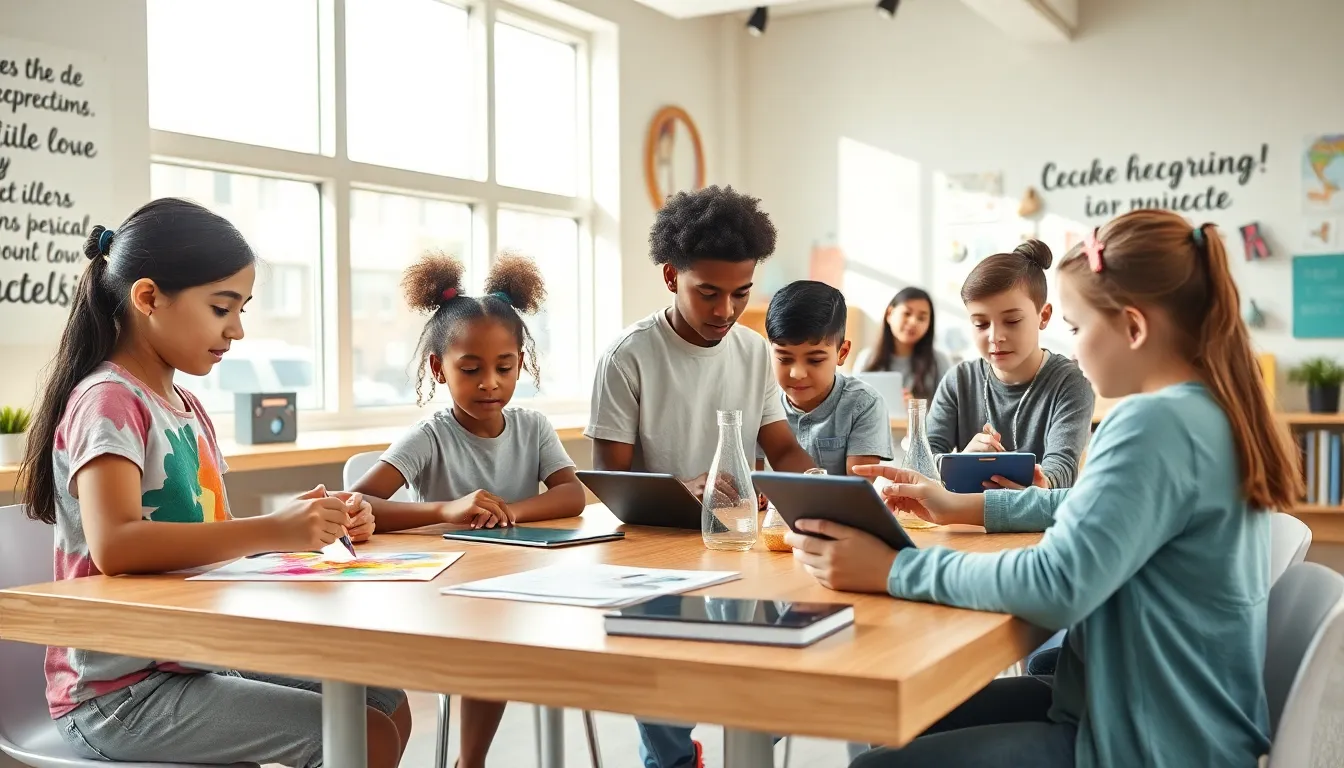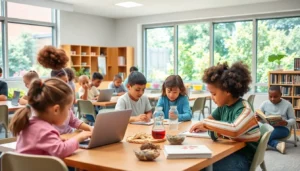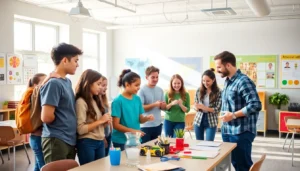Table of Contents
ToggleEducation is often likened to a one-size-fits-all suit, tight in all the wrong places, and definitely not flattering on everyone. Enter alternative education programs, a veritable buffet of learning options that cater to diverse needs and interests. Whether students find traditional settings stifling or simply seek something different, these programs provide refreshing alternatives designed to ignite the spark of learning. So, buckle up and get ready to explore how these unconventional educational paths might just be the golden ticket for those looking to break free from the conventional mold.
Understanding Alternative Education

Alternative education is more than just a trend: it’s a movement. Individuals often feel lost in a traditional system, feeling like they’re just another number in a classroom packed tighter than a can of sardines. This is where alternative education steps in, offering innovative and flexible programs tailored for a variety of learners. At its core, alternative education seeks to create a more personalized learning environment that prioritizes the students’ needs, interests, and goals.
The emphasis here is on the student rather than the standard curriculum. Alternative programs often foster critical thinking, creativity, and collaboration over mere compliance. Schools like Montessori and Waldorf are prime examples of this philosophy, focusing on holistic development rather than rote memorization. Here, students engage in hands-on learning experiences that cultivate both intellectual and emotional intelligence.
Types of Alternative Education Programs
So, what exactly falls under the umbrella of alternative education? A smorgasbord of options awaits those willing to explore.
Montessori Schools
These schools prioritize self-directed learning and allow students to choose their activities in an environment designed for exploration and discovery. Think of it as an educational playground where curiosity is the star of the show.
Waldorf Education
Rooted in developmental psychology, Waldorf education focuses on nurturing a child’s spirit, intellect, and practical skills. Its emphasis on arts and movement engages students in ways that traditional formats often overlook.
Homeschooling
Many parents choose to homeschool their children for a personalized education experience, often tailoring the curriculum to fit the child’s interests and strengths. This can mean everything from field trips and life skills lessons to traditional textbook learning, creating a dynamic educational journey.
Online and Blended Learning
In our digital age, online education programs have surged. They offer flexibility and accessibility, making it easier for learners to balance their studies with other commitments. Plus, with blended learning options, students can combine online coursework with in-person instruction for a balanced experience.
Alternative High Schools
For those needing a different pace or style, alternative high schools can provide a second chance. These settings often focus on individualized learning and may incorporate work experience, community service, or vocational training.
Benefits of Alternative Education
Diving headfirst into alternative education isn’t merely a leap of faith: it’s armed with a myriad of benefits.
First off, engagement skyrockets when students learn in environments that resonate with their individual needs. They’re more likely to retain information when they feel connected to what they’re studying. Secondly, alternative education fosters creativity. Students often enjoy open-ended projects, allowing them to express themselves in unique ways.
Flexibility is another massive advantage. Alternative programs often allow for personalized schedules and learning methods, catering to students who may not thrive in a rigid timetable. For many, this adaptability leads to improved self-esteem and motivation, helping them view learning as a positive journey rather than a chore.
Social skills also benefit, as alternative settings typically emphasize collaboration and peer interaction, helping students forge strong relationships with each other.
Challenges and Considerations
While alternative education has plenty of opportunities, it also poses challenges worth noting. One significant hurdle is the inconsistency of program quality. As some alternative schools may lack accreditation or proper oversight, prospective students and parents must thoroughly research and vet programs.
Financial considerations also come into play. Many alternative programs can be more expensive than traditional public schooling, often requiring tuition or specialized materials. Some programs may offer scholarships or sliding scale payments, so exploring financial options is crucial.
Parents must also be aware of the potential for social isolation, particularly in homeschooling or remote learning scenarios. While some thrive in solitude, others may find themselves craving structured social interactions. Ensuring opportunities for social engagement should be a priority for any learner.
How to Choose the Right Program
Selecting the right alternative education program can feel overwhelming, but it doesn’t need to be. Start by assessing the student’s individual needs and learning style. Are they a visual learner or auditory? Do they thrive on structure or prefer a more open environment?
Next, consider what the student wishes to achieve. Are they looking to explore new interests, or do they need a focused academic recovery plan? Engaging with other families and seeking recommendations can also provide invaluable insights into which programs are effective.
Finally, visiting potential schools or programs and talking to educators can help gauge whether a specific environment feels like the right fit.
Case Studies of Successful Programs
Many alternative education programs have paved the way for innovation and success. For instance, the Montessori method has seen widespread acclaim due to its focus on individualized learning. Students have reported higher levels of engagement and success in higher education.
Another compelling example is the Khan Academy, which utilizes technology to deliver personalized learning experiences online. By adjusting lessons based on a student’s performance, it ensures each learner progresses at their own pace.
Plus to firms and schools, community-based initiatives also exemplify successful alternative education. Organizations offering after-school programs or workshops focused on art, science, or coding have seen children thrive in environments away from standard education.




